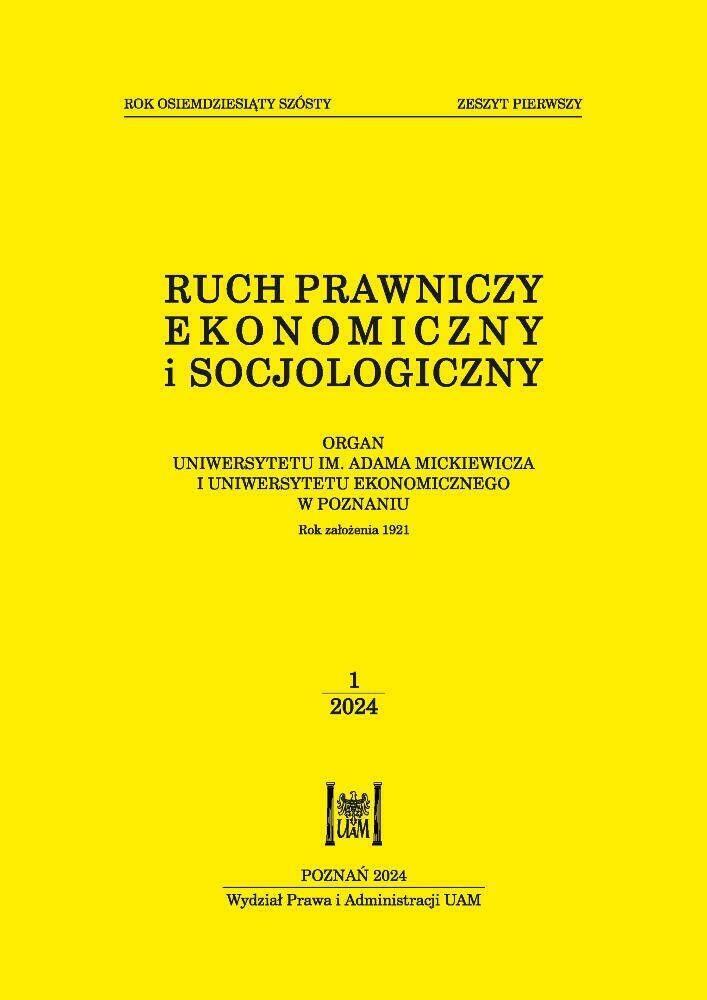Abstrakt
This article analyses the relationship between real earnings management (REM) and corporate governance variables, including family ownership, external audit quality, and CEO experience. The studies analysed were published between 2006 and 2021. The Sarbanes-Oxley Act of 2002 and the implementation of international financial reporting standards have led companies to reduce the use of accrual earnings management (AEM), and instead adopt real earnings management. However, many authors claim that using REM might harm a company’s long-term wellbeing, which accentuates the need to study the determinants of REM. The variables analysed in this paper are extensively covered in the literature, however, there is still ambiguity regarding their relationship with REM due to conflicting findings; some studies indicate a positive relationship, while others show a negative one. To resolve this ambiguity, meta-regression analysis is employed. The results indicate a positive relationship between family ownership and REM. This highlights the need to explore other forms of ownership to determine the most effective ownership structure that does not increase REM. This is of interest to legislators. The results provide no evidence to support the statistical or economic significance of CEO experience and external audit in relation to REM.
Bibliografia
Achleitner, A-K., Gunthner, N., Kaserer, C., & Siciliano, G. (2013). Real earnings management and accrual-based earnings management in family firms. European Accounting Review, 23(3), 431–461. DOI: https://doi.org/10.1080/09638180.2014.895620
Alhmood, M. A., Shaari, H., & Al-dhamari, R. (2020). CEO characteristics and real earnings management in Jordan. International Journal of Financial Research, 11(4), 255–266. DOI: https://doi.org/10.5430/ijfr.v11n4p255
Ashraf, B. N., & Qian, N. (2021). The impact of board internationalization on real earnings management: Evidence from China. Sage Open, 11(3), Article 215824402110326. DOI: https://doi.org/10.1177/21582440211032640
Brown, P., Beekes, W., & Verhoeven, P. (2011). Corporate governance, accounting, and finance: A review. Accounting & Finance, 51(1), 96–172. DOI: https://doi.org/10.1111/j.1467-629X.2010.00385.x
Chi, W., Lisic, L. L., & Pevzner, M. (2011). Is enhanced audit quality associated with greater real earnings management? Accounting Horizons, 25(2), 315–335. DOI: https://doi.org/10.2308/acch-10025
Choi, A., Choi, J.-H., & Sohn, B. C. (2018). The joint effect of audit quality and legal regimes on the use of real earnings management: International evidence. Contemporary Accounting Research, 35(4), 2225–2257. DOI: https://doi.org/10.1111/1911-3846.12370
Chowdhury, S. N., & Eliwa, Y. (2021). The impact of audit quality on real earnings management in the UK context. International Journal of Accounting & Information Management, 29(3), 368–391. DOI: https://doi.org/10.1108/IJAIM-10-2020-0156
Cohen, D. A., & Zarowin, P. (2010). Accrual-based and real earnings management activities around seasoned equity offerings. Journal of Accounting and Economics, 50(1), 2–19. DOI: https://doi.org/10.1016/j.jacceco.2010.01.002
Feki Cherif, Z., Damak Ayadi, S., & Ben Hamad, S. B. (2020). The effect of family ownership on accrual-based and real activities-based earnings management: Evidence from the French context. Journal of Accounting and Management Information Systems, 19(2), 283–310. DOI: https://doi.org/10.24818/jamis.2020.02004
García-Meca, E. & Sánchez-Ballesta, J. (2009). Corporate governance and earnings management: A meta-analysis. Corporate Governance: An International Review, 17(5): 594–610. DOI: https://doi.org/10.1111/j.1467-8683.2009.00753.x
Geyer-Klingeberg J., Hang, M., & Rathgeber, A. (2021). Corporate financial hedging and firm value: A meta-analysis. The European Journal of Finance, 27(6), 461–485. Geyer-Klingeberg, J., Hang, M., & Rathgeber, A. (2020). Meta-analysis in finance research: Opportunities, challenges, and contemporary applications. International Review of Financial Analysis, 70, Article 101524. DOI: https://doi.org/10.1080/1351847X.2020.1816559
Ghaleb, B. A. A., Kamardin, H., & Tabash, M. I. (2020). Family ownership concentration and real earnings management: Empirical evidence from an emerging market. Cogent Economics & Finance, 8(1), 1751488. DOI: https://doi.org/10.1080/23322039.2020.1751488
Graham, J. R., Harvey, C. R., & Rajgopal, S. (2005). The economic implications of corporate financial reporting. Journal of Accounting and Economics, 40(1–3), 3–73. DOI: https://doi.org/10.1016/j.jacceco.2005.01.002
Healy, P.M., & Wahlen, J.M. (1999). A review of the earnings management literature and its implications for standard setting. Accounting Horizons, 13(4), 365–383. DOI: https://doi.org/10.2308/acch.1999.13.4.365
Hsieh, T.-S., Bedard, J. C., & Johnstone, K. M. (2014). CEO overconfidence and earnings management during shifting regulatory regimes. Journal of Business Finance & Accounting, 41(9–10), 1243–1268. DOI: https://doi.org/10.1111/jbfa.12089
Kabaciński, B., Mizerka, J., & Stróżyńska-Szajek, A. (2022). Institutional investors and real earnings management: A meta-analysis. Economics and Business Review, 8(22), 50–79. DOI: https://doi.org/10.18559/ebr.2022.2.4
Khanh, H. T. M., & Khuong, N. V. (2018). Audit quality, firm characteristics and real earnings management: The case of listed Vietnamese firms. International Journal of Economics and Financial Issues, 8(4), 243–249. www.econjournals.com/index.php/ijefi/article/view/6592
Khlifi, S., & Zouari, G. (2021). The impact of CEO overconfidence on real earnings management: Evidence from M&A transactions. Journal of Accounting and Management Information Systems, 20(3), 402–424. DOI: https://doi.org/10.24818/jamis.2021.03002
Malik, M. (2015). Corporate governance and real earnings management: The role of the board and institutional investors. Journal of Knowledge Globalization, 8(1), 37–87.
Mutschmann, M. (2018). The fish rots from the head down: Managerial personality and financial reporting quality. Leuphana Universität Lüneburg.
Razzaque, R. M., Ali, M. J., & Mather, P. (2020). Corporate governance reform and family firms: Evidence from an emerging economy. Pacific-Basin Finance Journal, 59, Article 101260. DOI: https://doi.org/10.1016/j.pacfin.2019.101260
Ronen, J., & Yaari, V. (2008). Earnings management: Emerging insights in theory, practice, and research. Springer.
Roychowdhury, S. (2006). Earnings management through real activities manipulation. Journal of Accounting and Economics, 42(3), 335–370. DOI: https://doi.org/10.1016/j.jacceco.2006.01.002
Stanley, T. D. (2007). Meta-regression methods for detecting and estimating empirical effects in the presence of publication selection. Oxford Bulletin of Economics and Statistics, 70(1), 103–127. DOI: https://doi.org/10.1111/j.1468-0084.2007.00487.x
Stanley, T. D., & Jarrell, S. B. (1989). Meta-regression analysis: A quantitative method of literature surveys. Journal of Economic Surveys, 3(2), 161–170. DOI: https://doi.org/10.1111/j.1467-6419.1989.tb00064.x
Villalonga, B., & Amit, R. (2020). Family ownership. Oxford Review of Economic Policy, 36(2), 241–257. DOI: https://doi.org/10.1093/oxrep/graa007
Wang, D. (2006). Founding family ownership and earnings quality. Journal of Accounting Research, 44(3), 619–656. DOI: https://doi.org/10.1111/j.1475-679X.2006.00213.x
Licencja
Prawa autorskie (c) 2024 WPiA UAM

Utwór dostępny jest na licencji Creative Commons Uznanie autorstwa 4.0 Międzynarodowe.





